Research Proposal: CHD Risk Factor Knowledge in Melbourne Hospital
VerifiedAdded on 2023/04/05
|5
|721
|273
Report
AI Summary
This research report delves into coronary heart disease (CHD), a significant health concern characterized by the narrowing of coronary arteries. The study highlights the increasing prevalence of CHD, particularly in developing countries, and its association with lifestyle changes and preventable risk factors like poor nutrition, obesity, and smoking. It emphasizes the importance of understanding patient perceptions and beliefs in managing CHD effectively. The research aims to assess the level of awareness and knowledge regarding CHD risk factors, explore the relationship between health literacy and self-management skills, identify factors influencing knowledge, understand attitudes and practices towards prevention, and identify techniques for effective education. The intended outcomes will be disseminated in healthcare institutions and clinics to improve awareness and promote lifestyle interventions. Data analysis will be conducted using SPSS, and the findings will be used to target appropriate strategies for improving health literacy and adherence to preventive measures.
1 out of 5
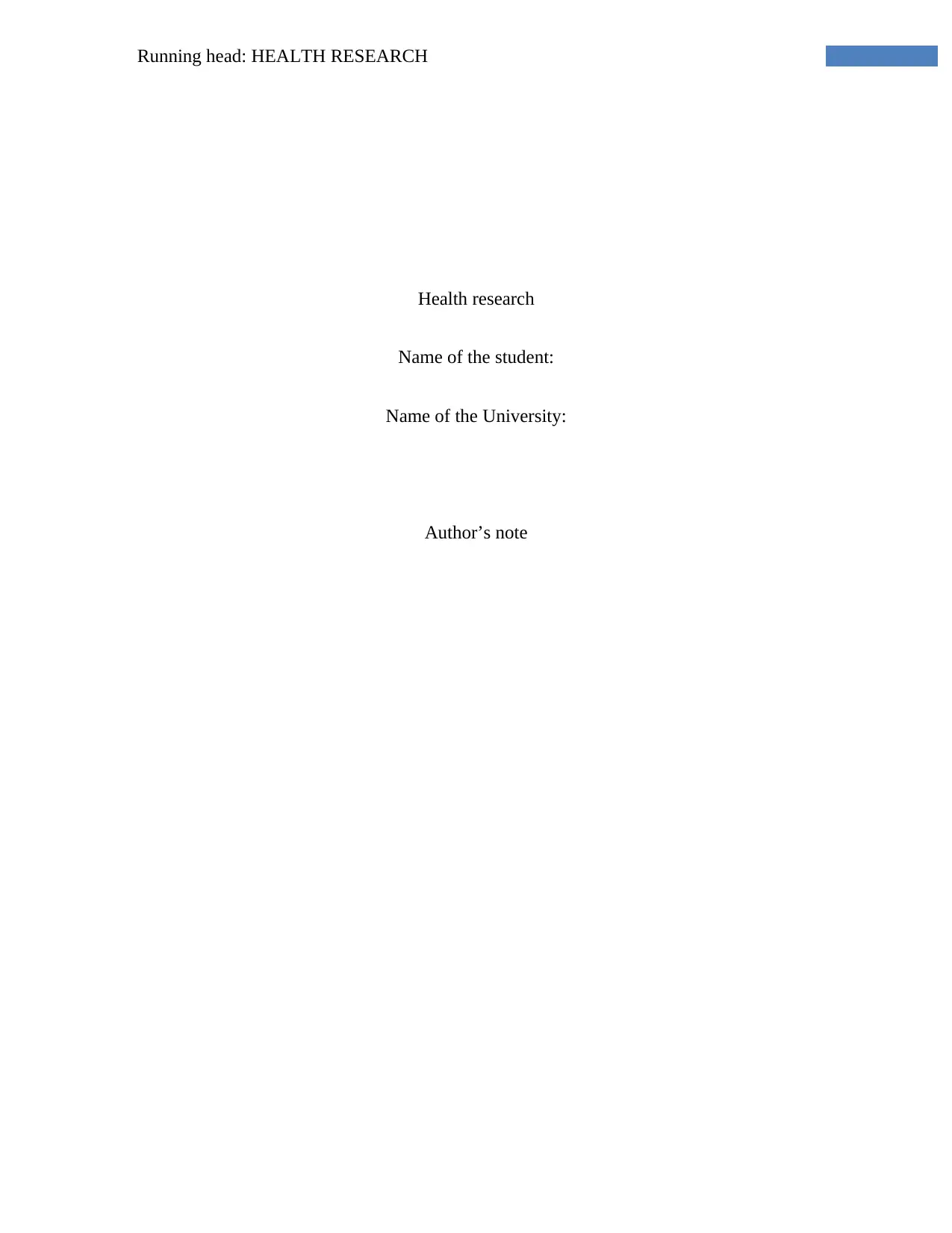
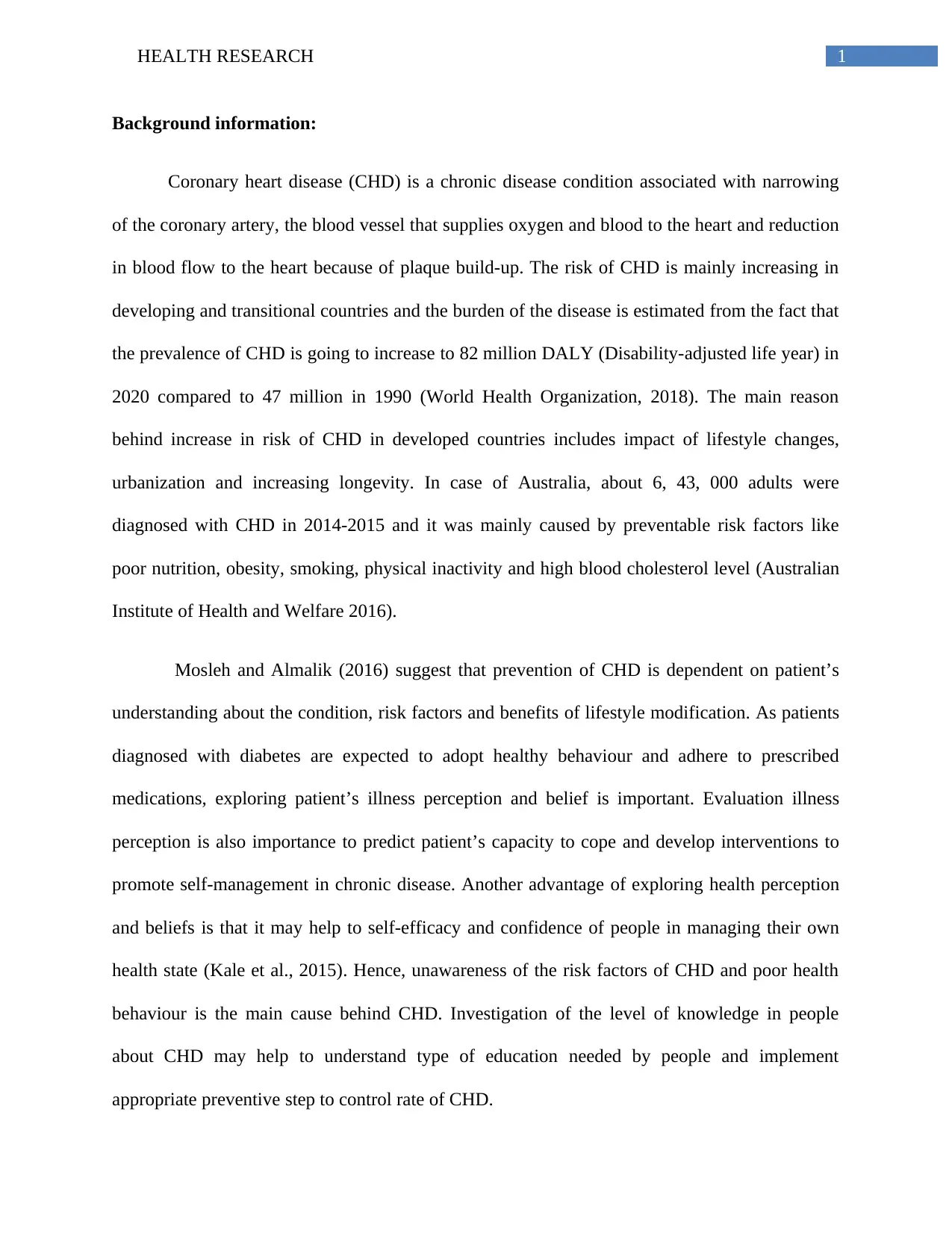
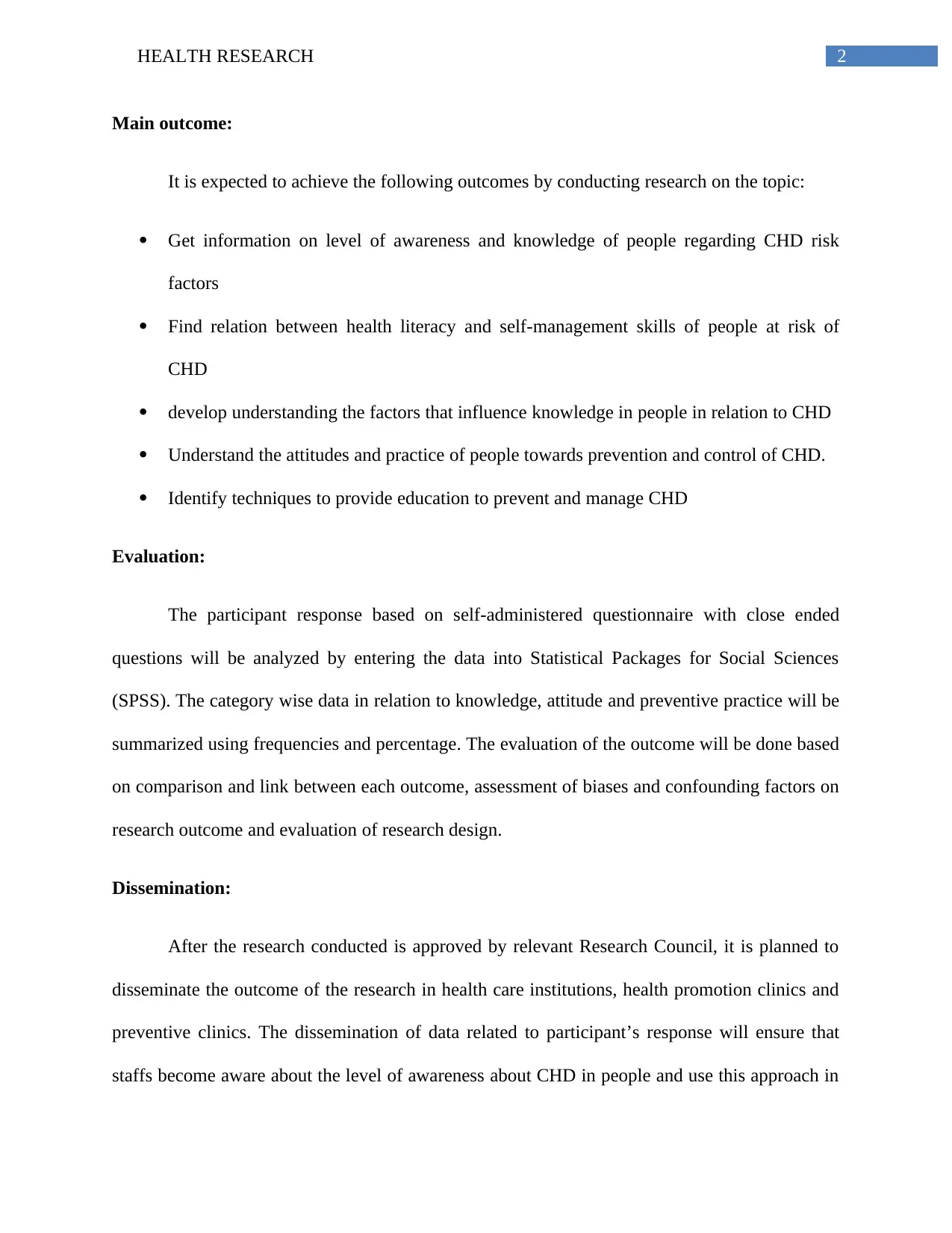

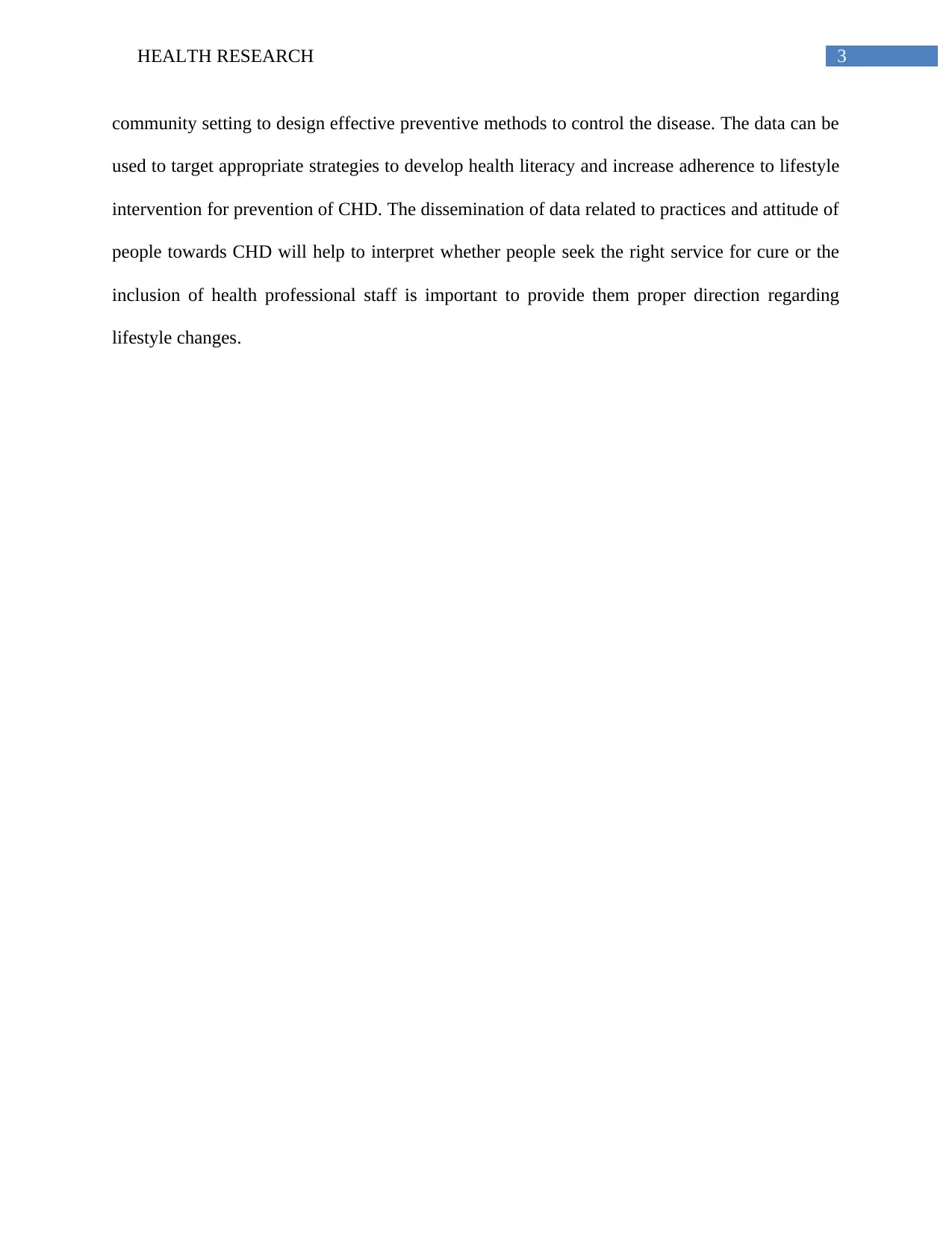
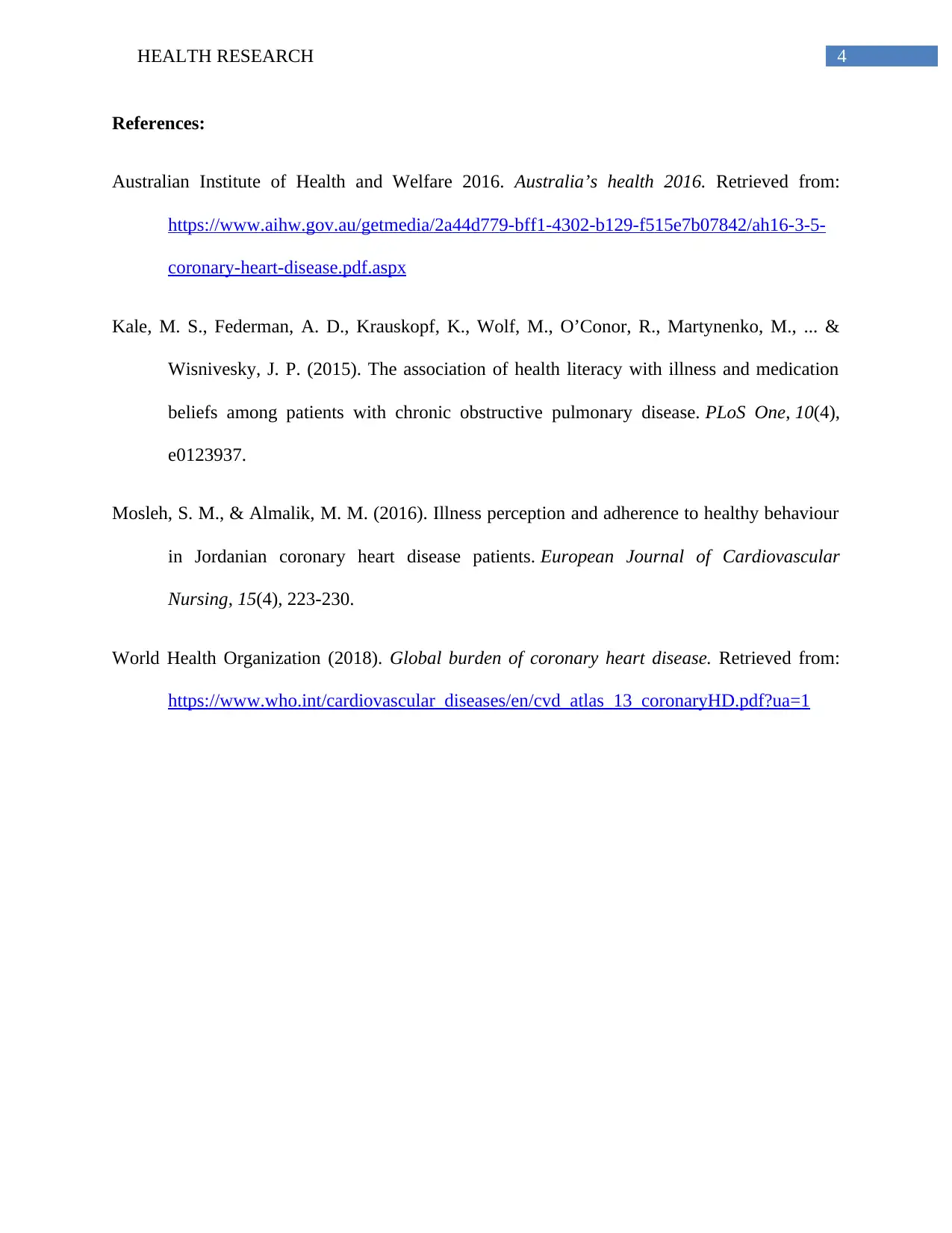






![[object Object]](/_next/static/media/star-bottom.7253800d.svg)